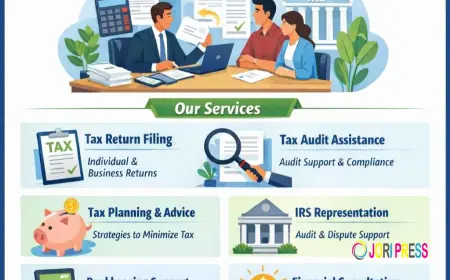Navigating the Indian E-commerce Landscape: A Strategic Guide to Legal and Financial Compliance.
India’s e-commerce sector has witnessed exponential growth over the past decade, driven by increasing internet penetration, smartphone usage, and changing consumer preferences. While the sector presents immense opportunities for businesses, it also comes with complex legal and financial obligations. For entrepreneurs and established companies alike, ensuring compliance is critical to building a sustainable e-commerce business.
Understanding the Legal Framework
The Indian e-commerce industry is regulated by multiple laws and guidelines that safeguard consumer rights, ensure fair competition, and streamline digital transactions. Some of the key regulations include:
-
Information Technology Act, 2000: Governs online contracts, data privacy, and cybersecurity obligations.
-
Consumer Protection (E-commerce) Rules, 2020: Mandates transparency in product listings, return policies, and grievance redressal mechanisms.
-
Competition Act, 2002: Prevents unfair trade practices and ensures healthy market competition.
-
Legal Metrology Act, 2009: Requires accurate product labeling with details such as weight, price, and manufacturing information.
Compliance with these laws is non-negotiable for avoiding penalties and maintaining consumer trust.
Licensing and Registrations
Every e-commerce business in India must secure relevant licenses and registrations before commencing operations. These include:
-
Company Incorporation under the Companies Act, 2013, or registration as an LLP.
-
GST Registration for collecting and remitting taxes on sales.
-
Trade License from local authorities to carry out business legally.
-
Shops and Establishment Act Registration based on the state of operation.
-
Data Protection Measures, including compliance with IT Rules, for safeguarding customer information.
Additionally, sellers dealing with regulated products such as food, pharmaceuticals, or electronics may require sector-specific approvals from bodies like FSSAI, CDSCO, or BIS.
Financial Compliance and Taxation
E-commerce operators in India must navigate a well-defined taxation framework. Under GST, marketplaces are required to collect Tax Collected at Source (TCS) at 1% on net taxable supplies. Proper invoicing, timely filing of GST returns, and maintaining accurate financial records are vital to avoid disputes with tax authorities.
Foreign direct investment (FDI) is another crucial area of financial compliance. As per current FDI policies, 100% FDI is permitted under the automatic route for marketplace models but not for inventory-led models. Businesses must structure their operations carefully to remain compliant with these norms.
Data Privacy and Cybersecurity
E-commerce platforms deal with sensitive customer data, making data protection a critical compliance area. Companies must implement strong encryption, secure payment gateways, and adhere to emerging data protection laws, including the upcoming Digital Personal Data Protection Act, 2023. Non-compliance not only attracts penalties but also risks reputational damage.
Building a Compliance-First Strategy
To navigate India’s e-commerce regulatory landscape effectively, businesses should:
-
Engage legal and financial experts for proactive compliance.
-
Regularly audit operations to identify and address gaps.
-
Train employees on compliance protocols.
-
Use technology-driven compliance management tools.
Conclusion
The Indian e-commerce sector promises significant growth, but sustainability depends on a strong foundation of legal and financial compliance. By adhering to regulatory requirements, businesses can build trust, minimize risks, and position themselves for long-term success in one of the world’s fastest-growing digital marketplaces.
What's Your Reaction?
 Like
0
Like
0
 Dislike
0
Dislike
0
 Love
0
Love
0
 Funny
0
Funny
0
 Angry
0
Angry
0
 Sad
0
Sad
0
 Wow
0
Wow
0















































